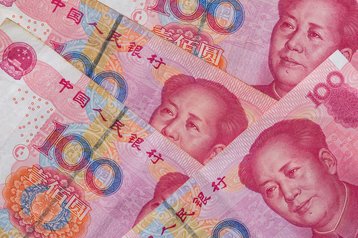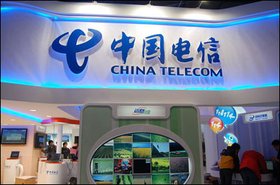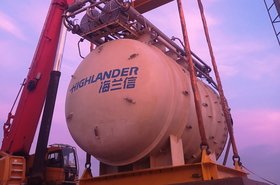Despite widespread sanctions stopping the export of high-powered AI chips to China, military institutions, state-run AI research centers, and universities across the country have been purchasing Nvidia GPUs.
According to a report from Reuters, publicly available tender documents show that there have been over 100 transactions relating to the sale of A100 chips over the last year, with H100, A800, and H800 chips also being procured by Chinese institutions in spite of the bans.
The US is currently engaged in a trade war with China, imposing restrictions on the export of chips to the People's Republic in order to stop the country from having access to advanced technology that could be used for military modernization and human rights abuses.
To comply with the latest wave of sanctions, Nvidia has been developing less powerful versions of their chips for sale in China, including the HGX H20, L20 PCIe, and L2 PCIe chips. The semiconductors are less powerful variants of existing products, designed to abide by the export rules.
According to the report, the Harbin Institute of Technology and the University of Electronic Science and Technology of China - two establishments subject to individual US export restrictions - were both shown to have purchased restricted GPUs. Reuters claims the Harbin Institute bought six Nvidia A100 chips in May 2023 to train a LLM, while the University of Electronic Science and Technology of China purchased one A100 for an unknown purpose.
Reuters also reported that an unnamed People's Liberation Army entity had attempted to purchase three A100 chips and one H100 chip, however, the outlet said that due to the documents being heavily redacted, it could not confirm the reason for the attempted purchase or if the tender was successful.
The news came in the same week that the FT reported Chinese companies were repurposing Nvidia gaming chips by installing their core components onto new circuit boards to power AI hardware.
Chinese chip imports in decline
Overall, the semiconductor industry has seen a widespread decline over the last 12 months, with Gartner reporting that global revenue fell 11 percent in 2023 to $534 billion, with only nine of the top 25 vendors as ranked by Gartner posting revenue growth.
Declines in revenue for Intel, Samsung Electronics, Qualcomm, AMD, and SK Hynix illustrate the weakening in global demand for semiconductors throughout 2023.
This weakened demand combined with widespread US export sanctions has led to chip imports to China reaching a historic year-over-year decrease, with the shipment volume to the country declining by 10.8 percent, according to a report by Bloomberg.
Furthermore, the value of semiconductor imports to China fell 15.4 percent, further demonstrating that despite efforts by Chinese institutions to get their hands on banned high-powered chips, US sanctions are having the desired effect of stopping China from purchasing expensive semiconductors.
However, the decline in Chinese chip imports is likely to also tally with the country’s efforts to increase its domestic semiconductor manufacturing capabilities.
In August 2023, Huawei was accused by the Semiconductor Industry Association (SIA) of building a collection of secret semiconductor fabrication facilities in China to circumnavigate US sanctions. The SIA said it believed Huawei was building these facilities under the names of other companies without disclosing its involvement.
In September of that same year, Reuters reported that in an effort to catch up with Western chip manufacturing practices, the Chinese government was set to launch a third round of a state-backed investment fund that would raise approximately $40bn to support the country’s domestic semiconductor sector.
Launched by the China Integrated Circuit Industry Investment Fund, also known as the Big Fund, Reuters reported that the funds would be used to invest in equipment for manufacturing semiconductors.






